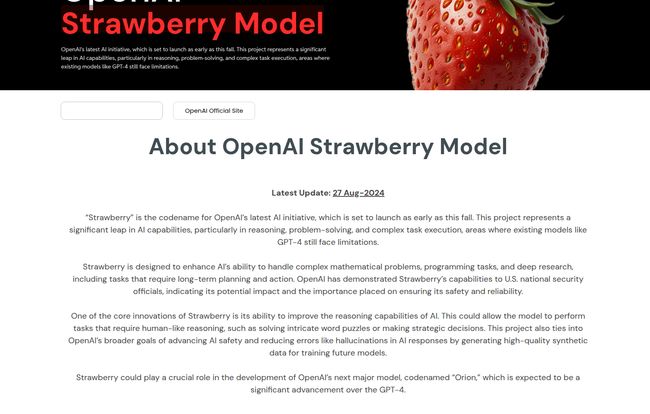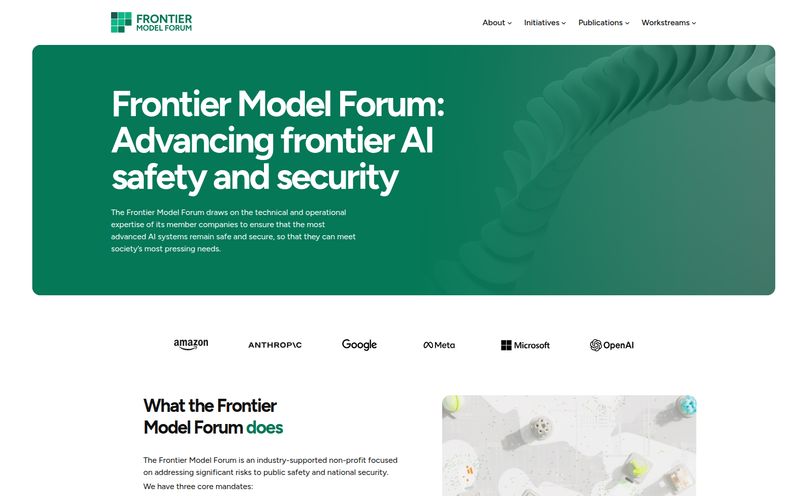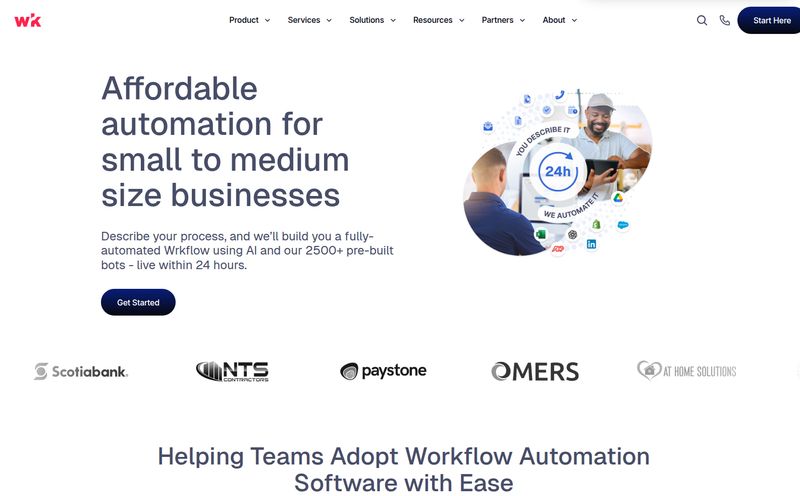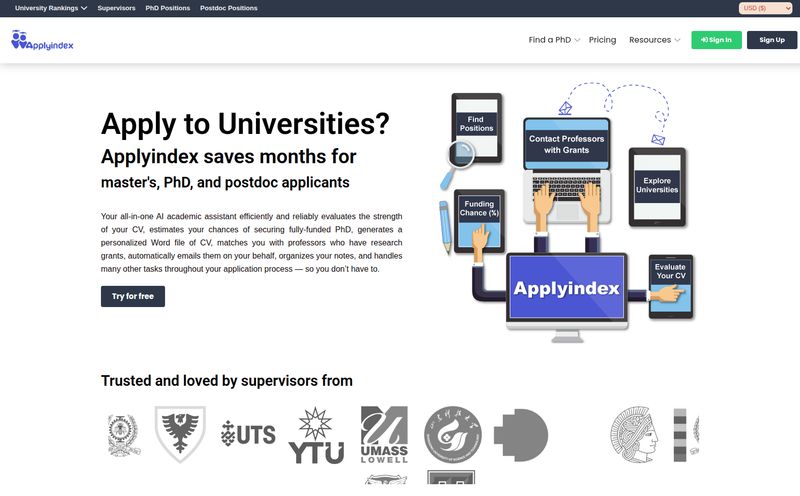If you're like me, your inbox and social feeds are a constant firehose of "The Next Big Thing in AI." It’s exhausting, right? Every other week there's a new model, a new acronym, a new promise to change everything. But every now and then, a name pops up that makes you lean in a little closer. A name that isn't shouted from the rooftops but whispered in tech articles and forum threads.
Lately, that name is Strawberry.
It sounds... sweet. Unassuming. But the chatter around OpenAI's codenamed project, Strawberry, suggests it's anything but. We're not talking about another small iteration. We’re talking about a potential shift in how AI thinks. And as someone who's spent years wrestling with algorithms and generating traffic, a shift in AI thinking is a seismic event.
So, What Exactly is This 'Strawberry' Project?
First off, let's clear the air. "Strawberry" is a codename. A project name. You won't find strawberry.openai.com (I checked, and the closest thing I found was a fan-made site that led to a 404 error, which tells you a lot). This is something being cooked up in the labs at OpenAI, and from the bits and pieces we've gathered, it's a major initiative.
Think of GPT-4 as a brilliant, lightning-fast student who has read every book in the library. It can recall facts, summarize texts, and write a pretty decent essay. But ask it to solve a truly novel, multi-step problem, and sometimes you see the seams. It's executing patterns, not truly reasoning.
Strawberry is OpenAI's attempt to build the professor. It’s designed to improve the model’s ability to handle complex reasoning, deep research, and tasks that take place over a long time. We’re talking about the kind of stuff that gives current models a headache, such as its ability to perform advanced mathematical computations, tackle complex programming tasks, and conduct deep research that requires synthesizing information from dozens of sources while maintaining a coherent goal over days, not just minutes.
Its a fundamental upgrade to the AI's cognitive engine. A move from pure pattern-matching to something that feels more like genuine problem-solving.

Visit OpenAI Strawberry
Why 'Strawberry' Could Be a Game-Changer for AI Safety
Here's where it gets really interesting for me. One of the biggest thorns in the side of AI development is the "hallucination" problem. You know, when an AI confidently states a completely fabricated "fact." It's a trust-killer.
Strawberry is apparently tackling this head-on. The project isn't just about making the AI smarter; it's about making it more reliable. One of the core methods is reportedly using the advanced reasoning model to generate incredibly high-quality synthetic data. This data can then be used to train future models, essentially teaching them from a "cleaner", more logically sound textbook.
If they pull this off, it's huge. Imagine an AI that can not only generate content but also fact-check itself with a much higher degree of accuracy. For us in the content and SEO world, that could mean a future where AI tools are less of a liability and more of a truly dependable partner.
The Road to 'Orion' is Paved with Strawberries
You might have also heard whispers of another codename: Orion. This is widely believed to be the successor to the GPT-4 series—what we might eventually call GPT-5 or whatever branding they land on.
Strawberry isn't a competitor to Orion; it's the foundation. The advanced reasoning and safety protocols being developed under the Strawberry project are expected to be the core components of the Orion model. It’s like they're building a revolutionary new engine (Strawberry) before they reveal the hypercar it’s going into (Orion).
This makes perfect sense. You don't just build a more powerful model by feeding it more data. At some point, you have to fundamentally improve its architecture. And it seems that's exactly what Strawberry is all about.
High-Stakes Demos and a Hint of Secrecy
Adding another layer to the intrigue is the fact that OpenAI has apparently demonstrated Strawberry's capabilities to U.S. national security officials. That tells you a couple of things. One, they are very confident in its power. Two, they are aware of the immense responsibility that comes with it. You don't bring the Pentagon in for a peek at a minor update. This suggests capabilities that have serious, real-world applications and implications.
Let's Keep Our Feet on the Ground: The Current Realities
Okay, deep breath. Before we all start planning for our new AI overlords, let's pump the brakes a little. As exciting as all this is, there are some pretty big caveats.
The biggest one? The information vacuum. As I mentioned, there's no official page. No whitepaper. No public demo. Most of this information is pieced together from insider reports and tech journalism. It’s a black box, and anyone who tells you they know exactly how it works is probably bluffing.
It's also crucial to remember that this is a project still under deep development. It's not a product you can subscribe to. There's no pricing, no API documentation, nothing. It’s R&D, and timelines in R&D are notoriously... flexible. The reports say a fall launch, but in tech, "fall" can mean anything from September to just before Christmas.
What This Means for Us SEOs and Digital Marketers
So, what should we, the people on the front lines of digital traffic, do with this information? Panic? Nope. Prepare? Absolutely.
If an AI is coming that can perform deep, long-form research, the value of surface-level, "10 best X" articles will plummet even further. Our job will shift even more toward providing unique data, original perspectives, and genuine expertise that the AI can use as high-quality source material. The bar for E-E-A-T (Experience, Expertise, Authoritativeness, Trustworthiness) is about to be raised. Again.
It also signals a new wave of potential tools. Imagine an SEO tool powered by Strawberry that doesn't just scrape keywords but can analyze the logical structure of the top 10 results and identify gaps in reasoning. Or a content creation assistant that can help build a pillar page by actually understanding the topic, not just rephrasing Wikipedia. The possibilities are pretty wild.
Your Questions About OpenAI Strawberry Answered
I've seen a lot of questions flying around, so let's tackle a few of the big ones head-on.
What is the OpenAI Strawberry project, really?
It's a codenamed research and development initiative at OpenAI. Its main goal is to significantly improve an AI's ability to reason, solve complex problems (like advanced math), and execute long-term tasks. Think of it as an upgrade to the AI's "brain," not just its knowledge base.
When is OpenAI Strawberry expected to launch?
The current buzz points to a launch or a more formal announcement sometime in the fall of this year. However, this is based on reports, not an official OpenAI roadmap, so take it with a grain of salt.
How does Strawberry differ from models like GPT-4?
The key difference is the focus on reasoning. While GPT-4 is amazing at language tasks and knowledge retrieval, it can struggle with multi-step logic. Strawberry is being built to overcome that, enabling it to tackle problems that require more human-like strategic thinking and planning.
Is Strawberry the same as Orion or GPT-5?
No. Think of Strawberry as a key ingredient, and Orion (the likely codename for the next major model, i.e., GPT-5) as the final dish. The technology and capabilities developed in the Strawberry project are expected to be integrated into Orion.
Where can I find official information about Strawberry?
You can't, really. And that's the tricky part. There is no official project page from OpenAI at the moment. Information is currently coming from tech reporting and insider sources, so it's best to follow reputable tech news sites for updates.
The Sweet Promise of What's to Come
Look, the AI space moves at a ridiculous pace. It’s easy to get jaded. But Strawberry feels different. It's not just about making the AI bigger; it's about making it smarter, safer, and more capable in a way that feels foundational. It’s a quiet project right now, but the implications are loud.
It represents a move away from AI as a simple parrot and toward AI as a potential partner in reasoning. For anyone in the business of information, that’s not just an update—it’s the start of a whole new chapter. I, for one, am keeping a very close eye on this one. It might just be the most flavorful development of the year.
Reference and Sources
While official documentation is scarce, the information in this article was synthesized from reports in leading tech publications and community analysis. The community-created site, which currently shows a 404 error, can be found at:
- strawberryai.com (Note: This is not an official OpenAI site and, as of this writing, is not active).



